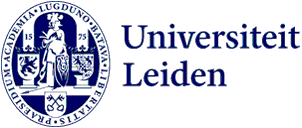PhD defence
Re-inventing the Nineteenth-Century Tools of Unprescribed Modifications of Rhythm and Tempo in Performances of Brahms’s Symphonies and Concertos
- J. Leertouwer
- Date
- Thursday 12 January 2023
- Time
- Address
-
Academy Building
Rapenburg 73
2311 GJ Leiden
Supervisor(s)
- Prof. M. Cobussen
- Prof. C. Brown (Leeds University)
- Dr. A. Scott
PhD dissertations
Approximately one week after the defence, PhD dissertations by Leiden PhD students are available digitally through the Leiden Repository, that offers free access to these PhD dissertations. Please note that in some cases a dissertation may be under embargo temporarily and access to its full-text version will only be granted later.
Press enquiries (journalists only)
+31 (0)71 527 1521
nieuws@leidenuniv.nl
General information
Beadle's Office
pedel@bb.leidenuniv.nl
+31 71 527 7211
You are cordially invited to the public defence by Johannes Leertouwer of the research project entitled ‘Re-inventing the Nineteenth-Century Tools of Unprescribed Modifications of Rhythm and Tempo in Performances of Brahms’s Symphonies and Concertos.’ On January 12 at 11h15, Leertouwer will defend his dissertation in the Academy Building of Leiden University. The defence ceremony will be in English.
The core of Leertouwers dissertation consists of audio recordings of Johannes Brahms’s four Symphonies and four Concertos on 8 CDs. These recordings were made during the four years of Leertouwer’s PhD research with a special project orchestra which he assembled for this purpose. The orchestral rehearsals and performances with this orchestra functioned as a laboratory in which research findings could be tested and developed. The recordings represent the results of Leertouwer’s efforts to re-invent the expressive potential of nineteenth-century expressive tools, particularly modifications of rhythm and tempo. Leertouwer presents his recordings together with films and a written part. In 18 films the work with the orchestra is documented and examples of modifications are discussed.
The final part of the dissertation is a written description of the way in which Leertouwer’s interpretations are rooted in his understanding of historical evidence of nineteenth-century performance practices.
